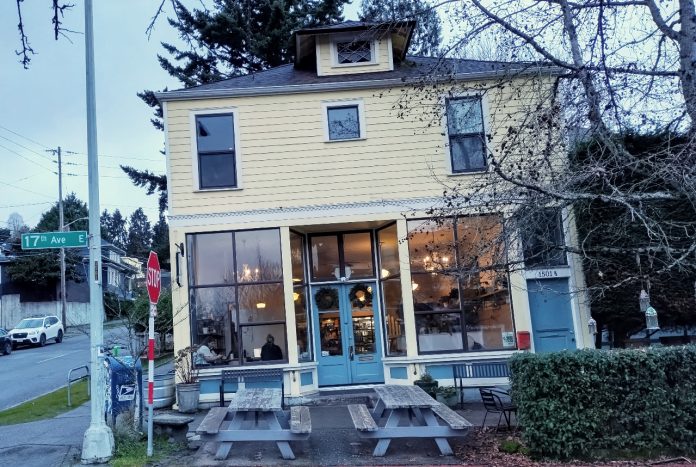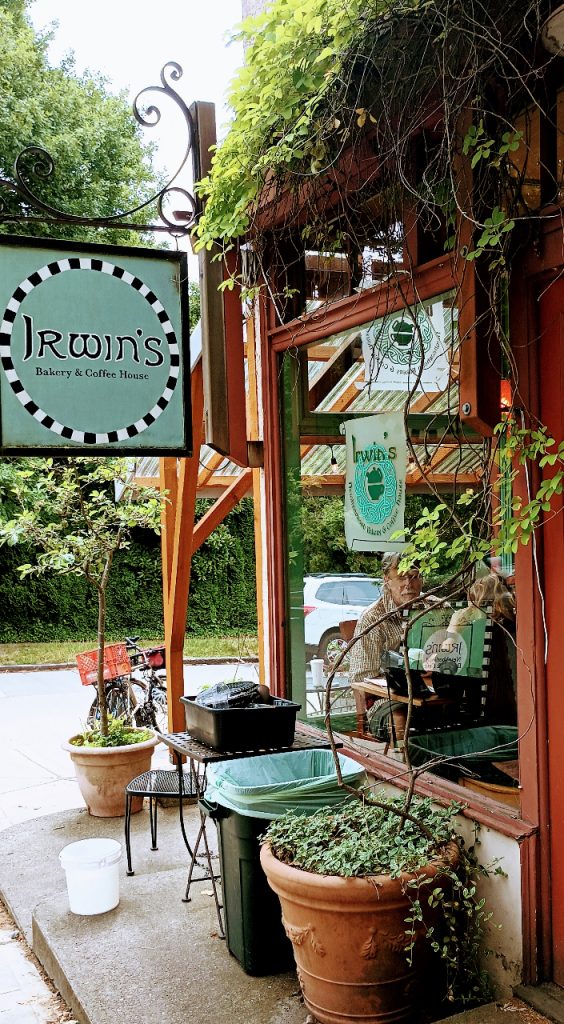
Washington State could see more small neighborhood cafes opening up within short walking distances of homes, under a proposal advancing at the state legislature. If enacted, the change would represent a significant inroad in the rolling-back of strict zoning laws that have been in place for decades segregating commercial and residential uses in the majority of Washington’s lower-density neighborhoods.
House Bill 2252, sponsored by Representative Mark Klicker (R-16, Walla Walla), would require every city and town in the state to permit the operation of a neighborhood cafe in a residential zone, regardless of whether the zone allows other business uses. Under a substitute version of the bill approved Friday, as long as business owners didn’t propose a drive-thru, and the cafe wouldn’t be located on a street with only one egress (a dead-end road), there would be no size restriction on the amount of space a cafe could occupy, except a 500-square foot minimum. Cities also couldn’t require cafes to have more than two off-street parking spots, significantly less than the current parking requirements in many areas of the state. In Walla Walla, for example, current minimum parking requirements for a modestly-sized 1,000 square foot cafe would be 10 off-street spaces.
“This a simple bill that would give these small cafes more locations to operate,” Rep. Klicker said in a release touting his bill. “Neighborhood cafes are popular with many folks in smaller communities because they give people easier access to their services and create a stronger sense of community. By making these cafes more accessible, this bill would be a win-win for small businesses and the people they serve.”
The definition of a cafe under the bill isn’t strictly limited to a place that serves coffee or tea; rather, it’s an establishment with a “limited menu of food items” which could encompass a large variety of pop-up shops. Alcohol would be allowed to be served as long as food is also on the menu, potentially opening up the concept of a cafe to include small wine bars or taprooms.
The bill would not apply to unincorporated areas controlled by county government, where over one-third of Washingtonians currently live. But it would apply to all cities and towns, no matter how small.
Ahead of its first committee vote Friday, members of the House Local Government Committee defeated an amendment that would have completely gutted the bill, turning the decision on whether to authorize neighborhood cafes over to city and town councils, leaving it to them to take an affirmative vote to allow neighborhood cafes. But they did approve an amendment that lets local governments approve hours of operation, which could be a way for cities and towns in opposition to stifle the bill’s intent.

Local governments going so far as to dictate when small businesses can be open might seem extreme, but it has precedent. The “Green Store” in Medina, one of the only commercial businesses permitted within the borders of Bellevue’s wealthy neighbor, still retains a covenant that doesn’t permit the owners of the store from opening their business on holidays, including some minor ones. That covenant was put in place over concerns around traffic generation that might happen, concerns that long-time residents have stated never materialized.
The current status quo of mostly separating business and residential uses is getting more scrutiny across the urban planning sphere. Earlier this month, Washington’s state transportation secretary, Roger Millar, brought up the impact of current zoning frameworks on the state’s traffic safety crisis, with additional car trips all but encouraged by the way we plan communities.
“Our land use patterns are the single greatest problem we have in terms of transportation safety: the fact that people are compelled to get into a car and drive, compelled to get into a car and be a passenger, or compelled to walk along the facility full of cars,” Millar said. “Some of the stuff I’ve said, kind of half joking, if we’re really, really concerned about people driving when they’re intoxicated, why does every community in Washington State require bars to have parking lots? And if we’re really interested in the relationship between where people consume alcohol and where they sleep at night, why do we require separation between residential neighborhoods and taverns? The only place you can site a tavern or liquor stores or anything like that is a certain distance away from schools, a certain distance away from homes.”
HB 2252 is just one example of the state legislature crossing the Rubicon of “local control” following last year’s “Session of Housing,” with a number of bills in 2024 that would require local governments to authorize uses inside residential neighborhoods that they’ve traditionally been able to exclude. Other bills advancing this year would permit child care facilities, and crack down on cities trying to evade already existing requirements in state law around siting permanent supportive and transitional housing.
Friday’s vote in the House Local Government Committee was a bipartisan, unanimous one in support of more neighborhood cafes, in a year where there are other sharp divisions between the Democratic and Republican caucuses when it comes to housing issues. With the passage of statewide missing middle housing reform last session, many of the state’s residential areas will slowly start to get a little bit denser over the coming decades, and this bill could provide more community spaces for those communities to rely on as they grow.
Ryan Packer has been writing for The Urbanist since 2015, and currently reports full-time as Contributing Editor. Their beats are transportation, land use, public space, traffic safety, and obscure community meetings. Packer has also reported for other regional outlets including BikePortland, Seattle Met, and PubliCola. They live in the Capitol Hill neighborhood of Seattle.

